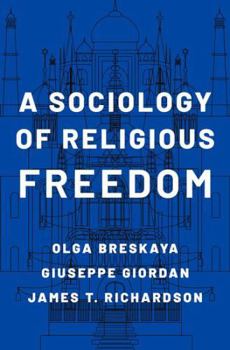A Sociology of Religious Freedom
In recent years, the relevance of religious freedom has spread well beyond academia, becoming a reference point for international relations, multi-level policy development, as well as interfaith negotiations. Meanwhile, scholarship on religious freedom has flourished on the boundaries of sociology, law, comparative politics, history, and theology. This book presents a systematic sociological analysis of religious freedom, bringing together classical sociological theories and empirical perspectives developed during the last three decades. It addresses three major questions involved in any sociology of religious freedom. First: considering its complex and controversial nature, how can religious freedom be defined? Second: what are the recurrent sociological conditions and relevant social perceptions that will foster an understanding of religious freedom in varying political, legal, and socioreligious contexts? And third, what are the mechanisms of social implementation of religious freedom that contribute to making it a fundamental value in a society? Olga Breskaya, Giuseppe Giordan, and James T. Richardson suggest that a sociological definition of religious freedom requires us to take into account historical, philosophical, legal, religious, and political considerations of a given society-and that the social dimensions of religious freedom are as important as the legal ones.
Format:Hardcover
Language:English
ISBN:0197533817
ISBN13:9780197533819
Release Date:September 2024
Publisher:Oxford University Press
Length:312 Pages
Weight:1.25 lbs.
Dimensions:1.2" x 6.4" x 9.5"
Customer Reviews
0 rating





